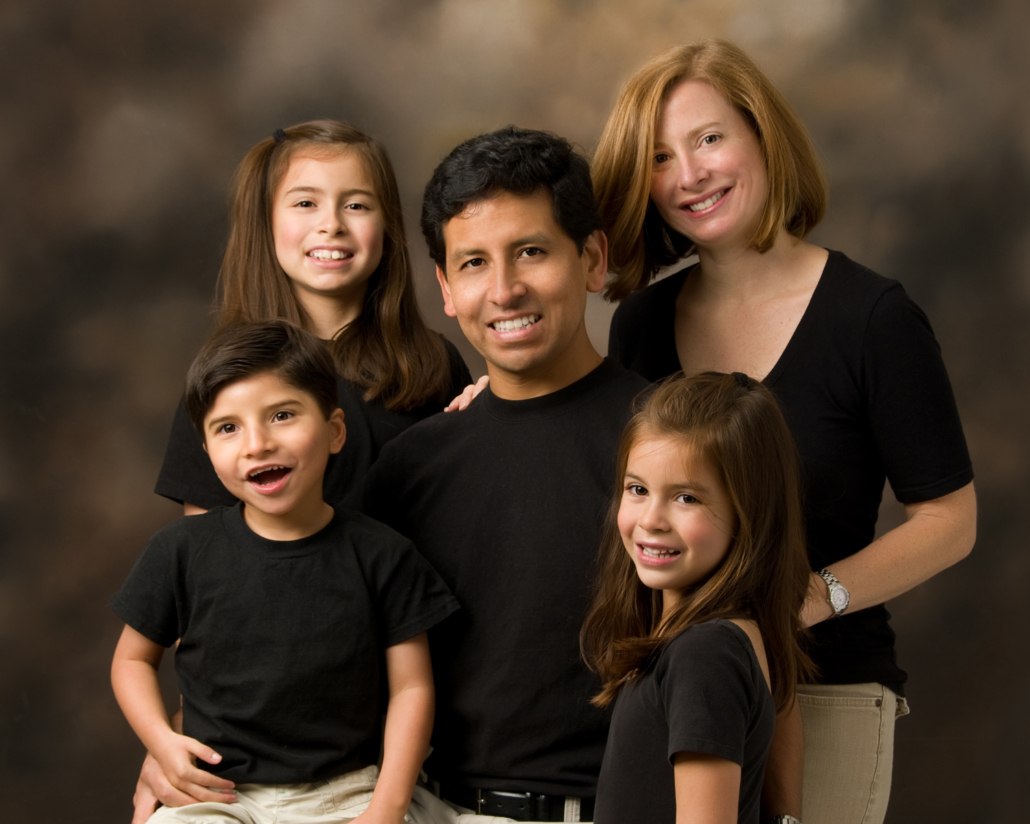Super Siblings in Neverland
 This article was written by the Pauca family, sharing their daughters’ journey of having a sibling with special needs (PTHS). It appears in the Spring 2013 Exceptional Child magazine, (pages 16-17 online) a publication of the Piedmont Parent, North Carolina.
This article was written by the Pauca family, sharing their daughters’ journey of having a sibling with special needs (PTHS). It appears in the Spring 2013 Exceptional Child magazine, (pages 16-17 online) a publication of the Piedmont Parent, North Carolina.
Victor Pauca may age, but in many ways, he may never have to grow up. So his parents needed to find a way to explain Victor’s complicated and very rare genetic disorder to his sisters, at a level that they could understand.
By Theresa Pauca
I am mommy to three super children: Sofia, 13; Francesca, 10; and Victor, 7. What makes them super? Their positive attitudes, infinite compassion and acceptance that everyone is different. All three children have learned from each other, and each has been given unique talents and gifts.
After my husband, Paul, and I were blessed with two precocious and gifted girls, we had begun to feel like we had done everything right. In fact, to a degree, we felt we could do nothing wrong. Our life was so great because we had made it that way — we felt almost invincible; nothing could shatter our world. Well, that nothing turned into something so life-changing that we could have never imagined it. We were blessed a third time with a son with special needs.
When Victor was born, it was not apparent that he had disabilities. But as he turned from an infant to a toddler, it was obvious he was not reaching his developmental milestones. Now remember, we were coming out of our fairy-tale world, where the girls did everything early. At first we thought he was just moving along at his own speed, but then it became clear that Victor’s pace was extremely gradual. The bubble, which we had carefully built around our perfect little lives, was just then bursting.
After a long road involving numerous doctors, at 2 and a half, Victor was diagnosed with a rare genetic disorder called Pitt-Hopkins syndrome (PTHS). There are only about 250 cases diagnosed world-wide. It is also so rare that there were no associations in the world for PTHS. So we started an international support group, and later the Pitt Hopkins Research Foundation (pitthopkins.org), with the help of some other amazing PTHS families.
What is Victor like?
He is one of the happiest people I have ever known. According to the National Library of Medicine at the National Institutes of Health, “Pitt-Hopkins syndrome is a condition characterized by intellectual disability and developmental delay which range from moderate to severe, breathing problems, recurrent seizures [epilepsy], and distinctive facial features. … Children with Pitt-Hopkins syndrome typically have a happy, excitable demeanor with frequent smiling, laughter.”
Some of the distinctive facial features are these pronounced Cupid’s bow lips and a wide smile, so children with PTHS are beautiful. Sometimes I like to tell people Victor has “Pitt Handsome syndrome,” just to see their reaction.
What do we tell the girls about their brother?
At the time of Victor’s diagnosis, they were 8 and 5. I am a “glass half full” person and wanted to use a positive message to tell them about Victor, without bringing unnecessary sadness into their young lives.
So I told them that Victor was like Peter Pan. In his mind he would never have to grow up, and we could always enjoy Neverland with him. We could share this special place with Victor forever. We could always enjoy buying him beautiful toys and could play happily with him, forever. I told them he wouldn’t have to do a hard job or even homework.
“Wow,” they said, with smiles on their faces, “Victor’s lucky.”
Is it always easy for our family?
Definitely not! Do we need help from family, friends and our community along the way? Yes! Just this past Christmas, I came to the realization five years after Victor’s diagnosis, that I should stop acting like I could do it all, because I can’t. If someone asks me if they can help, I now say “yes!” Because I know that if they didn’t want to help, they wouldn’t be asking.
What have the super siblings learned?
To be patient, helpful and kind. To accept other people’s differences — all kinds of differences. That we are not perfect and really wouldn’t want to be.
And they can visit Neverland, forever, with Victor.
Theresa Pauca is vice president of the Pitt Hopkins Research Foundation (pitthopkins.org), dedicated to finding a treatment and ultimately a cure for PTHS. She is married to Paul Pauca, who developed the app “Verbal Victor.” Theresa, Paul and their children live in Winston-Salem.

